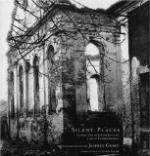Sam Bolton saw to it. His was not only the bodily labour, but the mental anxiety. His attitude was the tenseness of a helmsman in a heavy wind, quivering to the faintest indication, ready to give her all she will bear, but equally ready to luff this side of disaster. Only his equable mind could have resisted an almost overpowering impulse toward sporadic bursts of speed or lengthening of hours. He had much of this to repress in Dick. But on the other hand he watched zealously against the needless waste of even a single second. Every expedient his long woods life or his native ingenuity suggested he applied at once to the problem of the greatest speed, the least expenditure of energy to a given end, the smallest consumption of food compatible with the preservation of strength. The legitimate travel of a day might amount to twenty or thirty miles. Sam added an extra five or ten to them. And that five or ten he drew from the living tissues of his very life. They were a creation, made from nothing, given a body by the individual genius of the man. The drain cut down his nervous energy, made him lean, drew the anxious lines of an incipient exhaustion across his brow.
At first, as may be gathered, the advantages of the game seemed to be strongly in the Indian’s favour. The food supply, the transportation facilities, and advantage of position in case game should be encountered were all his. Against him he need count seriously only the offset of dogged Anglo-Saxon grit. But as the travel defined itself, certain compensations made themselves evident.
Direct warfare was impossible to him. He possessed only a single-barrelled muzzle-loading gun of no great efficiency. In case of ambush he might, with luck, be able to kill one of his pursuers, but he would indubitably be captured by the other. He would be unable to approach them at night because of their dogs. His dog-team was stronger, but with it he had to break trail, which the others could utilise without further effort. Even should his position in advance bring him on game, without great luck, he would be unable to kill it, for he was alone and could not leave his team for long. And his very swiftness in itself would react against him, for he was continually under the temptation daily to exceed by a little his powers.
These considerations the white men at first could not see; and so, logically, they were more encouraged by them when at last they did appear. And then in turn, by natural reaction when the glow had died, the great discouragement of the barren places fell on their spirits. They plodded, seeing no further than their daily necessity of travel. They plodded, their eyes fixed to the trail, which led always on toward the pole star, undeviating, as a deer flies in a straight line hoping to shake off the wolves.
The dense forest growth was succeeded in time by the low spruce and poplar thickets; these in turn by the open reaches planted like a park with the pointed firs. Then came the Land of Little Sticks, and so on out into the vast whiteness of the true North, where the trees are liliputian and the spaces gigantic beyond the measures of the earth; where living things dwindle to the significance of black specks on a limitless field of white, and the aurora crackles and shoots and spreads and threatens like a great inimical and magnificent spirit.




